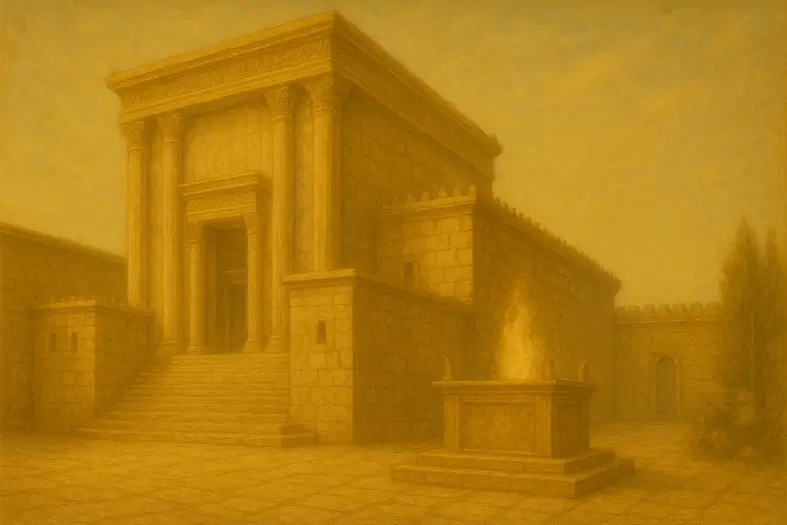


It is forbidden to eat any portion of the burnt offering (Olah), as it is entirely consumed on the Mizbeach.
This mitzvah prohibits eating the flesh of the Olah, the burnt offering. Unlike other korbanot in which portions are consumed by the Kohanim or the offerer, the Olah is wholly burned upon the altar. This demonstrates total dedication to Hashem, symbolizing the worshiper’s surrender and the offering of the self entirely to Divine service.
Rambam codifies this prohibition, underscoring that eating from an Olah violates the essence of its sanctity. Sefer HaChinuch teaches that the uniqueness of the Olah lies in its complete devotion to Hashem, with no human benefit. The Talmud emphasizes that this separation sets the Olah apart from other korbanot, teaching that some aspects of holiness belong to Hashem alone. Ramban notes that eating from the Olah would desecrate its purpose, blurring the boundary between Divine possession and human enjoyment.
Commentary & Classical Explanation:


Represents the concept of spiritual intentionality, purity, and sanctity—set apart for a higher purpose.
Concerns the Beit HaMikdash, korbanot (offerings), and priestly service.
Signifies awe and reverence toward Hashem—living with awareness of His greatness and presence.
Mitzvot that define and deepen the relationship between a person and their Creator. These include commandments involving belief, prayer, Shabbat, festivals, sacrifices, and personal holiness — expressions of devotion rooted in divine connection.

Dive into mitzvos, prayer, and Torah study—each section curated to help you learn, reflect, and live with intention. New insights are added regularly, creating an evolving space for spiritual growth.

Explore the 613 mitzvos and uncover the meaning behind each one. Discover practical ways to integrate them into your daily life with insights, sources, and guided reflection.

Learn the structure, depth, and spiritual intent behind Jewish prayer. Dive into morning blessings, Shema, Amidah, and more—with tools to enrich your daily connection.

Each week’s parsha offers timeless wisdom and modern relevance. Explore summaries, key themes, and mitzvah connections to deepen your understanding of the Torah cycle.